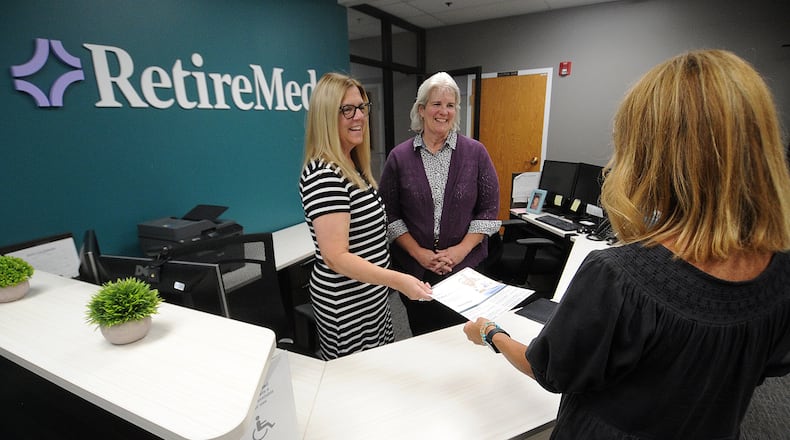While older adults should dive deeper into their specific wants and needs at age 64 or about a year before retirement, she said “it’s never too early” to learn the fundamentals. OSHIIP offers in-person events, live and recorded webinars, counseling and a free hotline at 800-686-1578.
Those who know the basics beforehand are better able to plan for both Medicare and retirement, Reeg said, and they may have an easier time as their own Medicare deadline approaches. The initial Medicare enrollment period includes the seven months comprised of the enrollee’s birth month, as well as the three months before and three months after that date.
“It eases some of that tension in choosing a plan,” Reeg said.
Start thinking about Medicare between the ages of 60 and 63, said Anne Behm, director of marketing at RetireMed, a Miamisburg-based team of Medicare advisers that also has an office in Blue Ash.
RetireMed offers a newsletter that could help those even early on in the process, and Behm said contacting the office as soon as age 63 can “get the conversation going.”
“There’s a lot of research and homework you want to do before picking a plan,” she said.
That includes knowing your options.
For example, many people don’t know that they can continue to work even if they enroll in Medicare at age 65, she said. For others, Medicare should be explored even if a younger spouse carries the insurance for the couple.
“A lot of times Medicare is cheaper than having your spouse covered through your employer,” Behm said.
Married couples also often think they need to have the same plan as a spouse, but that’s not true, she said. Each spouse should choose the plan that fits that person’s needs, doctors and prescriptions.
With more than 200 plans from which to choose, that may not be the same plan as a spouse, friend or neighbor.
“Medicare is definitely not one size fits all,” Behm said.
Work with a Medicare partner, she said, that can help you avoid mistakes when an initial Medicare plan is selected. That first plan could impact what is available and at what cost in the future.
Choosing the initial plan is important, but it isn’t the final stop in a Medicare journey. Plans change, as can an enrollee’s own doctors or prescriptions. Open enrollment from Oct. 15 to Dec. 7 is the time to assess needs and explore options again, she said.
While expert advice early on can ease the Medicare process for new enrollees, they also can benefit from having someone on their side who can offer guidance and help wade through their services and claims after they begin using their new plan.
“Make sure you have someone who can help you understand the intricacies of your plan after you enroll,” Behm said.
About the Author


